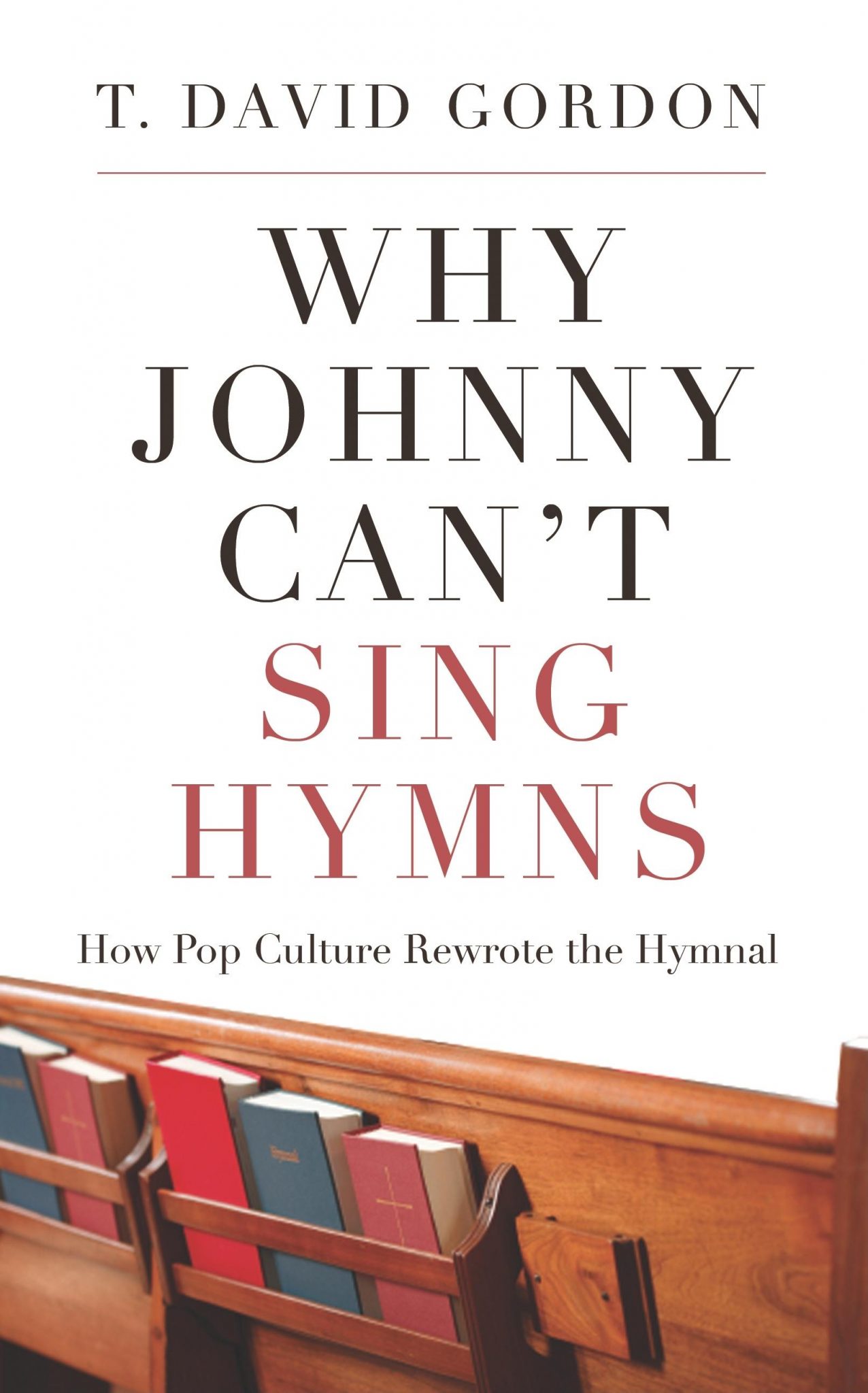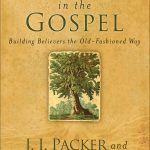T. David Gordon, professor at Grove City College, is something of a polemicist. His book Why Johnny Can’t Preach was an unflinching rebuke against much of the preaching within evangelical churches. In Why Johnny Can’t Sing Hymns: How Pop Culture Rewrote the Hymnal, Gordon weighs in on the current state of worship music within the American church. At the heart of the book resides a question: “Why is it that so many people effectively cannot sing traditional hymns?” (11). Gordon goes on to write, “One of the larger themes of this book is that contemporaneity itself is a tacit or implied value, promoted by many factors in our culture, but few more so than the ubiquity of pop music” (11).
Gordon wonders why so many churches promote themselves, or at least one of their services, as “contemporary” when contemporaneity has never in the history of the church been a perceived value. Gordon states that his purpose is to be descriptive of the current state of our corporate worship. “I am attempting to describe the current situation, and attempting to explain why nothing but pop music sounds like music to us. My goal is to explain why we have a preference for music that is often literarily, theologically, or musically inferior” (15). Indeed, Gordon argues that our “worship itself has declined profoundly and almost totally” (17).
And while it is true that the bulk of Why Johnny Can’t Sing Hymns is descriptive rather than prescriptive, Gordon nevertheless concludes the book with three chapters focused on practical matters. Gordon has little positive to say about the music being written for the church in our day. He does mention Stuart Townend as an example of a modern hymn writer who is composing music worth adding to the church’s hymnody. I would add Townend’s frequent collaborator, Keith Getty, to the list of modern worthies.

Why Johnny Can't Sing Hymns: How Pop Culture Rewrote the Hymnal
T. David Gordon
Why Johnny Can't Sing Hymns: How Pop Culture Rewrote the Hymnal
T. David Gordon
Changes in music have affected the way we think, the way we worship-even the way we are able to worship. We are steeped in a culture of pop music that makes other genres seem strangely foreign and unhelpful. Worship has become a conflict area, rather than a source of unity.
T. David Gordon looks at these changes in worship and not only examines the problems, but also provides solutions. They are solutions of great importance to us all- because how we sing affects how we live.
Gordon makes a compelling series of arguments against the use of pop music in corporate worship. His arguments focus primarily on the three dimensions mentioned above: the literary, theological, and musical merit (or lack thereof) of pop music. Two of the problems, perhaps the most significant problems with pop music according to Gordon are its 1) profanity, that is, it is common; and its 2) ubiquity, that is, it is everywhere. It operates like a kind of white noise in our culture.
Certainly many will challenge Gordon’s assessment of the relative importance of the music itself compared to the lyrical content of the songs. But part and parcel of the book’s thesis is that form is far from neutral. Indeed, it is foolish to try to separate form from content. As Gordon asserts, “We make tools and tools make us” (10).
Gordon places “paedocentrism” near the center of the present soiling of corporate worship. “Reaching the young” has become for the church what “doing it for the children” is for politicians. After all, who opposes reaching young people? But Gordon challenges this paedocentrism.
Biblically, the goal of youth is to leave it as rapidly as possible. The goal of the young, biblically, is to be mature. . . . We equate youth with youth culture, and erroneously believe that we cannot minister to the one without embracing, condoning, or promoting the other (161).
What is more, Gordon challenges the assumption of many baby boomers that pop music forms in worship is an effective way to reach young people. One of the “money quotes” from the book is, “Young people who attend a church and see a group of 50-year-olds playing their guitars in front of the church in order to “reach the young” will perhaps politely appreciate the gesture, but they frankly regard the music as being fairly lame” (59).
While the purpose of the book is to be descriptive, the final three chapters are strategic in nature, offering some practical thoughts on helping a church raised on popular musical forms to begin developing a taste for something more substantive and aesthetically beautiful. Gordon offers quite helpful counsel for helping people to move from “where they are” to a place of greater maturity.
I recommend Why Johnny Can’t Sing Hymns. Even if you don’t agree with all or even few of Gordon’s conclusions, it will challenge you to think about your opinions of worship. Is this biblical? Is this worthy of a great God? Is this beautiful? These are vital questions. Gordon pushes us to ask them. I am glad he pushes.




































